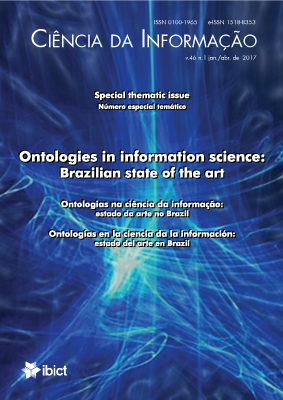Guidelines for writing definitions in ontologies
DOI:
https://doi.org/10.18225/ci.inf.v46i1.4015Keywords:
Definitions, Ontology, Textual definitions, Definitions in ontologies, Guidelines, Design patterns, Applied ontologyAbstract
Ontologies are being used increasingly to promote the reusability of scientific information by allowing heterogeneous data to be integrated under a common, normalized representation. Definitions play a central role in the use of ontologies both by humans and by computers. Textual definitions allow ontologists and data curators to understand the intended meaning of ontology terms and to use these terms in a consistent fashion across contexts. Logical definitions allow machines to check the integrity of ontologies and reason over data annotated with ontology terms to make inferences that promote knowledge discovery. Therefore, it is important not only to include in ontologies multiple types of definitions in both formal and in natural languages, but also to ensure that these definitions meet good quality standards so they are useful. While tools such as Protégé can assist in creating well-formed logical definitions, producing good definitions in a natural language is still to a large extent a matter of human ingenuity supported at best by just a small number of general principles. For lack of more precise guidelines, definition authors are often left to their own personal devices. This paper aims to fill this gap by providing the ontology community with a set of principles and conventions to assist in definition writing, editing, and validation, by drawing on existing definition writing principles and guidelines in lexicography, terminology, and logic.Downloads
Download data is not yet available.
Published
28/12/2017
Issue
Section
Parte I - Contribuições teóricas e metodológicas da pesquisa sobre ontologias
License
- This publication reserves the right to modify the original, regarding norms, spelling and grammar, in order to maintain the standards of the language, still respecting author writing style;
- The final proofs will not be sent to the authors;
- Published works become Ciência da Informação's property, their second partial or full print being subject to expressed authorization by IBICT's Director;
- The original source of publicaton must be provided at all times;
- The authors are solely responsible fo the views expressed within the article;
- Each author will receive two hard copies of the issue, if made availalbe in print.




























